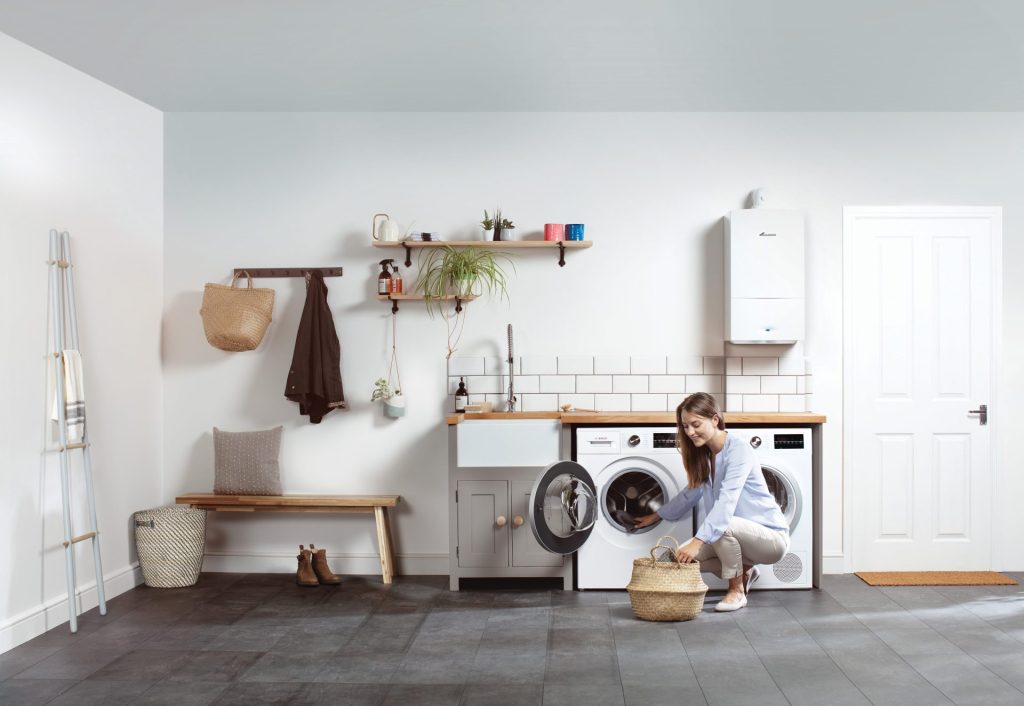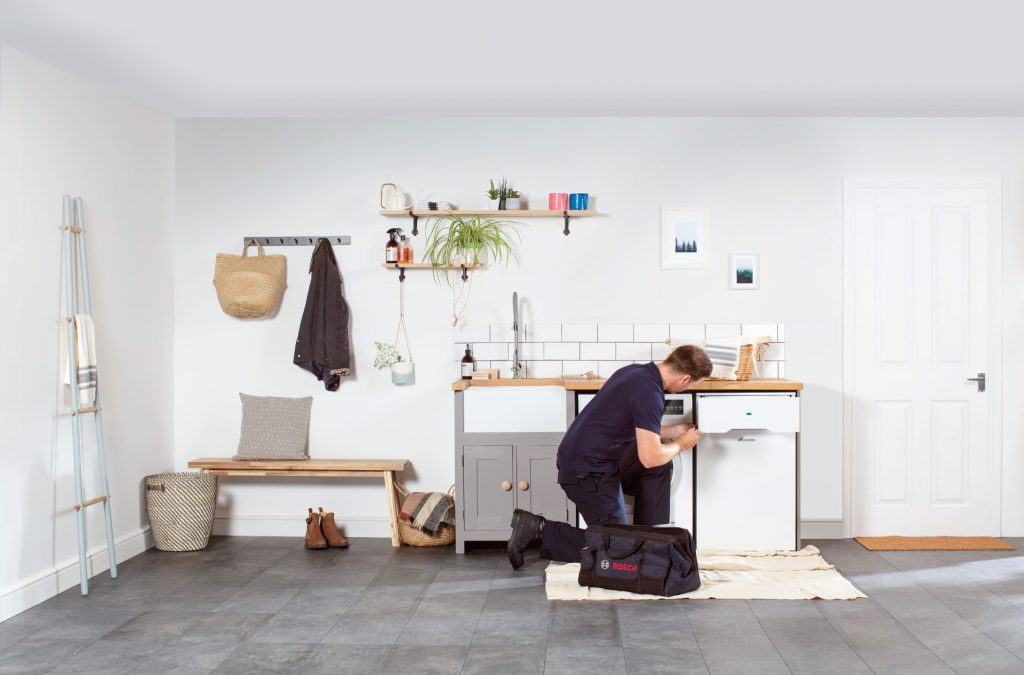Last Updated on April 18, 2024
Do plumbers fix boilers? Or do you need a heating engineer? This guide will help you understand their key differences and who you’ll need for your job.
If your boiler has broken down or developed faults, you may wonder whether to call a plumber or heating engineer.
It’s easy to confuse the two due to similarities in some overlapping duties. However, plumbers and heating engineers have distinct differences in qualifications and expertise.
While plumbers mainly work with water-based appliances, a heating engineer is skilled in jobs related to the heating system, such as servicing your boiler.
🔥 Need a New Boiler? Get a Fixed Price in 90 Seconds
Don’t waste time phoning around — Heatable shows you the best boiler deals online in under two minutes. No sales calls, no hidden fees, just instant prices from a trusted installer.
Get Your Fixed Price NowHiring a person with the right skills is vital to ensure a high-quality job and the safety of the appliances and people living in your house.

In this guide you’ll learn the following:
- How plumbers and heating engineers differ
- When you should hire a plumber instead of a heating engineer
- When you should hire a heating engineer instead of a plumber
- Where you can find a qualified plumber or heating engineer
- What can happen if you hire an unqualified plumber or heating engineer
- Should you hire a plumber or heating engineer?
- Best practices when hiring a plumber or heating engineer
Want to learn how to use your boiler better? Read our complete guide on boiler flow temperature, how to optimise your boiler settings, and find out how much gas a boiler uses here.
How Do Plumbers and Heating Engineers Differ?
The main difference between plumbers and heating engineers is in their expertise and qualifications.
According to the UK Energy Research Center, heating engineers have expertise in plumbing, electrics, pipework fitting, system selection, designs, and controls.
Conversely, plumbers specialise in solving water-related issues such as drainage systems, bathroom fixtures, and leaking pipes.
While heating engineers can sometimes perform plumbers’ work, the reverse is not always possible, especially if the work involves installing and repairing central heating systems.
When Should You Hire A Plumber Instead of A Heating Engineer?
Plumbers specialise in repairing and maintaining plumbing systems, including pipes, fixtures, and other water-based appliances.
Plumbers are responsible for ensuring the efficient operation of water systems in your home. They guarantee a clean and uninterrupted water supply and proper wastewater drainage.
Hiring a plumber can be suitable for jobs like:
- Plumbing system installation and repair, including bathroom sinks, toilets, and water heaters.
- Installing, repairing, cutting, and joining pipes and fixtures.
- Cleaning and unclogging blocked drains
- Repairing or replacing leaking pipes and taps
- Installing, repairing, and maintaining gas lines
- Ensuring a proper connection of gas lines and appliances
While plumbers can be Gas Safe registered, the certification doesn’t qualify them to work on heating systems. It only permits them to work on other gas appliances like cooktops, stoves, or ovens.
When Should You Hire A Heating Engineer Instead of A Plumber?
Heating engineers are trained and qualified to install, maintain, repair, or replace HVAC systems, which include heating, ventilation, and air conditioning.
Heating engineers usually have proficiency in working with appliances and heating systems that use different kinds of fuel, including gas, oil, and electricity.
They’re also responsible for assessing the complexity and existing structures of residential, commercial, or industrial buildings to ensure the correct installation of systems.
You should hire a heating engineer for jobs like:
- Installing central heating systems like boilers and radiators.
- Maintaining and servicing the heating system.
- Fixing and replacing central heating system components such as thermostats, heating pipework, heating controls, and hot water cylinders.
- HVAC system design and installation in new buildings
- Correcting improper ventilation and ensuring sufficient indoor air quality
It’s essential to check if the heating engineer is in the Gas Safe Register before booking an appointment for your heating system.
The law requires people who work with gas appliances to be Gas Safe Registered. People who work on oil boilers must also hold OFTEC certification.
Why the Confusion Between Hiring Plumbers or Heating Engineers?
Most heating engineers begin their careers as plumbers and advance their qualifications and expertise. As a result, you may find tradespeople who can take the role of a plumber or heating engineer because they are proficient in both industries.

Additionally, a plumber or heating engineer can perform overlapping responsibilities, such as installing, repairing, and maintaining pipework or fixtures.
Ensuring you’re hiring someone qualified to work on what they say they can is vital despite the confusion.
How old is your boiler? Should you consider repairing the boiler or looking at the latest boiler prices? It’s no secret that boiler efficiency deteriorates over time.
Where Can You Find A Qualified Plumber or Heating Engineer?
You can find a qualified plumber or heating engineer by checking if they’re registered with the Gas Safe register.
Registering with the Gas Safe Register is a legal requirement for anyone working on commercial and domestic gas appliances and installations in the UK, Isle of Man, and Guernsey. It ensures the public remains protected from unsafe gas work.
It’s easy to check the company or person’s name on the Gas Safe Register website. Alternatively, you can ask for the heating engineer or plumber’s Gas Safe ID card.
A Gas Safe ID card includes the photograph of the person, Unique registration number, applied business date, and start and expiry date.
Hiring a person without a Gas Safe Register registration to work on gas appliances is illegal, and the mistake is prevalent in the UK.
According to research by the Gas Safe Register, 16% of people trust anyone who says they’re registered and look at politeness, a nice smile, or good eye contact instead of checking their ID.
Remember, a plumber may be Gas Safe Registered but not qualified to work on your heating system.
A plumber can only be qualified to install or fix problems related to stoves. So it’s essential to ensure they hold Gas Safe Registration for the heating system.
What Can Happen When You Hire An Unqualified Plumber or Heating Engineer?
Hiring a tradesperson with the wrong qualifications for your heating system is easy due to overlapping roles and the myriad of options in the market.
However, the consequences can be deadly. An unqualified plumber or heating engineer may save you on labour costs but leave you with problems related to poor installation and leakage.
Studies show that the safety of over 1 million homes is threatened by illegal gas fitters annually, putting households at risk of gas leaks, carbon monoxide poisoning, fires, and explosions.
A faulty gas appliance is a huge concern as it can leak carbon monoxide (CO). CO is a toxic gas that can cause headaches, dizziness, breathlessness, nausea, and, in extreme cases, brain damage or even death.
Cutting corners and failing to ensure the work carried out in your home, especially with boilers, is done by a qualified and registered tradesperson can be catastrophic.
If you have any concerns about gas leakage, immediately contact Gas Emergency Service on 0800 111 99.
Have you heard about the gas boiler ban and are wondering what the alternatives to gas boilers are? Read our complete guide to replacing your gas boiler with a heat pump.
Should You Hire A Plumber or Heating Engineer?
The correct tradesperson to hire will depend on the services you need and the expertise needed to do the job.
Ensure you understand the specific work that needs to be done and the qualifications required when deciding who to hire for your project.
A plumber is more suited to installing or repairing pipes and fixtures, while a heating engineer is your best bet for repairing or installing a heating system.
Some professionals can have experience in both fields, and you may find a plumber accredited with the Gas Safe Register. However, it is vital to ensure they have the qualifications to work on your boiler or heating system.
There is a higher possibility that the plumber is only accredited for stove work. Hence, you must check if the plumber is accredited and qualified to work on boilers or other heating system parts.
Gas Safe Engineer Patrick Garner notes that a plumber or electrician can sometimes perform certain heating system tasks. However, a Gas Safe registered engineer must be hired if the tasks involve working with the gas supply.
Learn all about the different types of boilers, including condensing boilers, LPG boilers, oil boilers, and Opentherm boilers, and calculate boiler size in our guide.
Best Practices When Hiring A Plumber or Heating Engineer
Whether you’re hiring a plumber or heating engineer, ensuring they’re qualified and licensed is essential.
Here are some tips to help you find the right tradesperson for the job:
- Check for certifications and licenses before hiring a plumber or heating engineer. The Gas Safe Register can help you find a registered engineer in your area.
- Ensure anyone you hire has a Gas Safe ID card and always ask to see it. Check their unique license number with the Gas Safe Register. The back of the card will also show which appliances they’re qualified to work on.
- Compare quotes from 2-3 different Gas Safe registered businesses (making sure they are all qualified for the work you need to do)
- Check reviews online
- Consider asking the business to provide references from previous customers
- Check that the business has public liability insurance
- Confirm the job details in writing beforehand.
Final Thoughts on Hiring A Plumber or Heating Engineer
Plumbers and engineers help ensure your home and household appliances are well maintained. However, they each have distinct responsibilities and roles that can easily be confused. Before hiring a plumber or engineer, ensure you understand the qualifications required for the specific work.
Only hire heating engineers registered with the Gas Safe Register to handle repairs, maintenance, or installations of heating systems like boilers. Plumbers are more suited for repairing, installing, and maintaining fixtures and pipes.
Sources and References
- https://www.which.co.uk/reviews/boilers/article/boiler-maintenance/getting-the-best-boiler-service-a9h945b2brSV
- https://www.gassaferegister.co.uk/find-an-engineer-or-check-the-register/
- https://www.oftec.org/find-technician
- https://www.regulated-professions.service.gov.uk/professions/registered-gas-engineer#:~:text=Reserved%20activities-,Gas%20Safe%20Register%20is%20the%20official%20list%20of%20gas%20engineers,public%20from%20unsafe%20gas%20work.
- https://www.gassaferegister.co.uk/about-us/news/news-2016/more-than-a-million-households-put-at-risk-by-illegal-gas-fitters/
- https://www.nhs.uk/conditions/carbon-monoxide-poisoning/
- https://www.gassaferegister.co.uk/heating-engineer/
- https://heatable.co.uk/boiler-advice/can-you-install-a-boiler-yourself